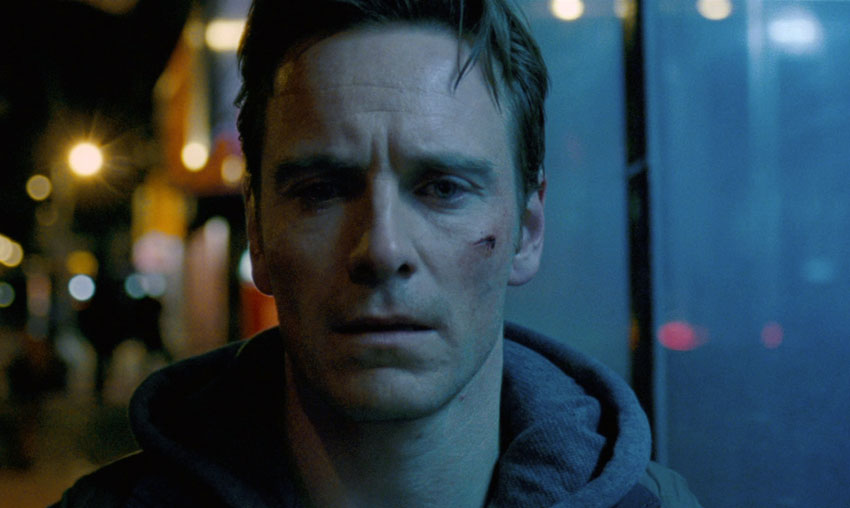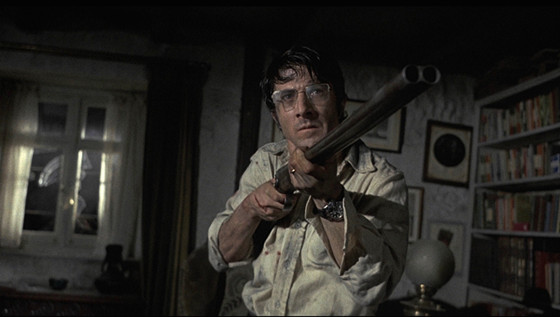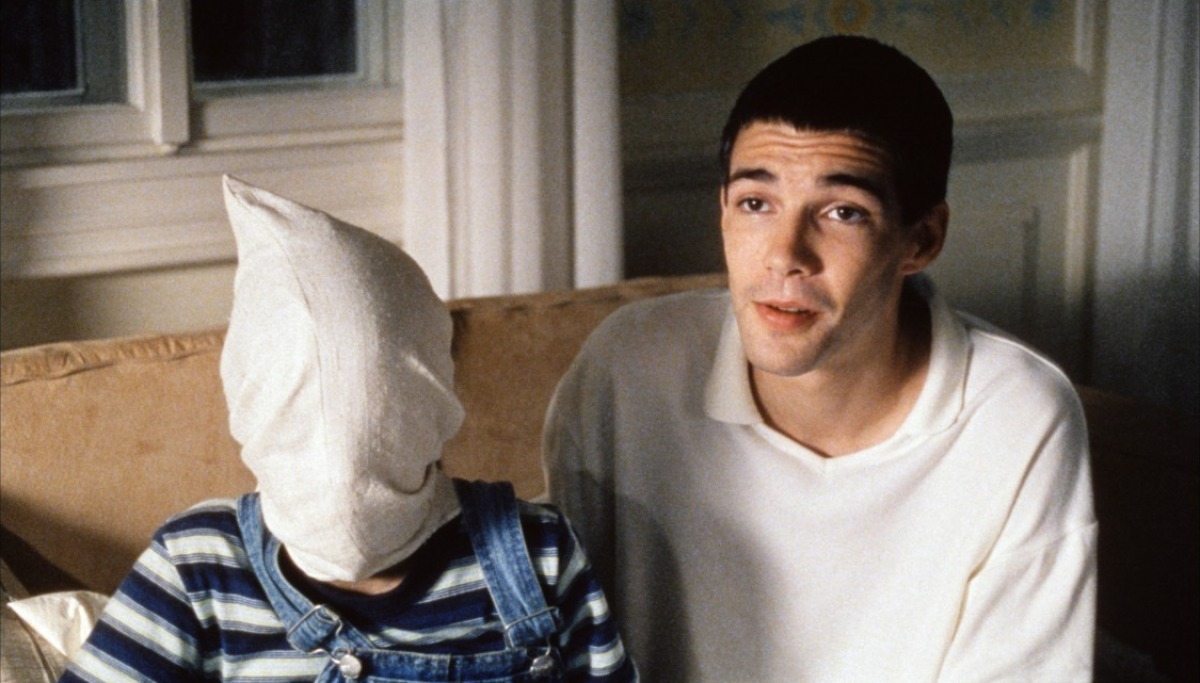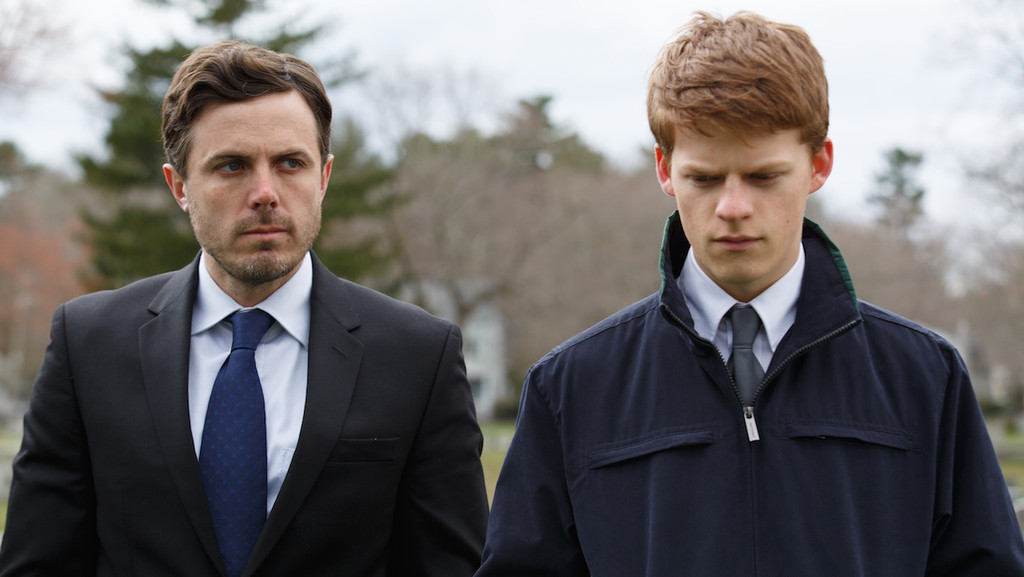
At its best, the cinematic art form is a completely immersive experience, taking us into created worlds and stirring deep emotional reactions. Understandably, the temptation is to only expose ourselves to films that reflect back to us our better selves and make our spirits soar. However, to do so is to overlook some of cinema’s greatest achievements.
Some of the best explorations of the nature of man are necessarily dark and depressing, but the raw honesty and insight they possess can be just as thrilling and culturally enriching as any conventionally ‘happy’ film.
1. Straw Dogs (1971)

Sam Peckinpah had already shocked audiences two years earlier with his explosive Western ‘The Wild Bunch’, so perhaps the film world should have been braced for his follow up, the darkly unnerving contemplation on violence, ‘Straw Dogs’.
However, it managed to generate a fresh controversy of its own, being banned in the UK and heavily edited for its U.S release. Insidiously haunting in its slow-burn expository scenes, terrifyingly graphic once it has ignited and morally ambiguous throughout, Straw Dogs stays with you long after it’s bloody finale has concluded.
Peckinpah is rightly lauded for his visionary approach to depicting the violence of men, but he often isn’t given enough credit for his technical ability as director, and nowhere is it on better display than here. The opening scenes are note-perfect, wasting no time in providing the necessary introduction to each character, and artfully foreshadowing the trouble ahead.
Indeed, there is even a novel twist on Chekov’s gun – we are shown a bear trap that is not only put to memorable use later on, but also acts as a metaphor for the rising tension, primed to snap at any moment.
Dustin Hoffman’s David, a timid intellectual from the States, moves to a small English village with his wife Amy (Susan George), who has grown up here. David’s outsider identity, his marriage to a former local and his pompous dealings with the locals serve to make him an easy target for resentment, and his attempts to appease the men serve only to emasculate and ridicule him.
Fault lines also appear in their marriage, and between the building resentments at home, and the encroaching threat from the locals outside his property, David is under siege.
Indeed, Peckinpah does a brilliant job of showing how David’s world is invaded, first metaphorically and then physically. He is backed into a corner, and his eventual response is one that Peckinpah wants us to believe is inevitable. He isn’t interested in offering us any heroes or moral clarity – the highly contentious rape scene being testament to this – and the harrowing conclusion that we are left with is that all of this felt entirely pointless, and yet utterly predictable.
2. Funny Games (1997)

Michael Haneke has developed a reputation over the years as a master of subverting audience expectations, describing his films as “an appeal for a cinema of insistent questions instead of false answers … for dialogue instead of consumption.” He is at his most meta with ‘Funny Games’, an intellectual slant on the home-invasion horror, complete with frequent Brechtian breakings of the fourth-wall, and a refusal to ever grant the audience what they want or expect.
It’s clear from the sudden jump from classical music to screeching heavy metal in the opening credits that we, and the protagonists at the heart of the film are about to be jolted out of our comfort zones. We are introduced to an affluent family in the process of setting up camp in their luxurious summer home, until they meet two at-first innocuous-but-increasingly-sinister neighbours.
Before long, the men have imprisoned the family in their own home, and begin subjecting them to the eponymous ‘games’, where the outcomes of nursery rhymes take on a horrific importance.
Haneke often likes to reflect on the complacency of the bourgeoise, and it is no coincidence that their affluent possessions (golf clubs, security gates) are what end up hurting them. However, Haneke’s real interest is in exposing the bloodthirstiness of the audience. We are never shown the moments of violence on screen, instead being subjected to long, drawn out sequences in their immediate aftermath, where the emotional toll of the acts begin to take hold, their physical consequences apparent.
There is one particularly inspired moment where the captors force the mother to strip, and in keeping the camera trained on her face only, we realise we are disappointed in not being shown the nudity that we were promised. Our shame is further compounded by the context in which we do eventually see her naked body.
Unlike the terrorised family, we are able to walk out on this experience at any moment, and indeed Haneke famously suggested that only those who watched the film to its conclusion were in need of its message. As the film ends, we are left to contemplate our apathy to violence, and question just how complicit we are in the fetishization of it in our society.
3. The Son’s Room (2001)

‘The Son’s Room, ’Nanni Moretti’s Palme D’or winner about a family’s intense grief following the loss of their teenage son is extraordinary for just how earnestly it is told. Every aspect of the film is gentle and tender, from Giuseppe Lanci’s unassuming cinematography, to the languid pacing, the understated acting performances to Moretti’s unfussy direction.
This makes for a delightful opening to the film, as we become acquainted with Psychotherapist Giovanni’s (Moretti himself) quietly blissful family life, and feel as if we know these characters.
Everything feels harmonious – his children are just the right amount of rebellious, the romantic and sexual chemistry with his wife is still intact and his therapy work provides him with intellectual stimulation (and perhaps a mischievous streak of amusement). However, it is this serene introduction to Giovanni’s world that makes the following events so heart-breaking.
Rather true-to-life, there is no foreshadowing of his Son’s death, no warning to allow us to brace ourselves. It happens suddenly, in an otherwise mundane day, and before we have had time to process it, the coffin lid is being welded shut.
The subsequent scenes showing the grieving process are exceptionally sad, precisely because of this truthful quality the film has. The family attempt to go back to normal, and whilst everything looks the same, there is an aching absence in all of their lives that cannot be ignored. Giovanni’s marriage begins to unravel and his job taunts him, forcing him to listen to the dull, blathering anxieties of his patients, and contemplate his very real trauma in comparison.
Although the film doesn’t’ provoke the same visceral discomfort as others on the list, its muted and modest representation of grief is highly affecting. Giovanni’s confused visit to a fairground, looking like a broken, haunted man is particularly hard to watch, as is his failed attempt at a back-to-normal dinner date with his wife, which quickly descends into agonising questions of “what if?”
Of course, there is no satisfying answer to such questions, and whilst Moretti grants the audience an ending that hints at the first signs of a recovery, the journey to that point is a draining, yet rewarding one.
4. Manchester By The Sea (2016)

Kenneth Lonergan’s nuanced, contemplative ‘Manchester-by-the-Sea’ is never interested in big, showy moments, or neat narrative conclusions. Indeed, the horrific accident at the black heart of the film is shown from a distance, focusing instead on the mundane, every-day lead-up and the agonizing despair of the aftermath.
Affleck’s Oscar win for Best Actor was somewhat mired in controversy, due to his alleged real-life transgressions, but there can be no denying the merit of his win on purely artistic grounds. It is an absolutely remarkable performance that anchors the entire film, and the scene at the police station following the aforementioned disaster is especially affecting.
These flashbacks show Affleck’s Lee as grief-stricken, wracked with guilt, and unable to comprehend the capricious finality with which is life has irrevocably changed for the worse.
Affleck does a great job of showing how those feelings have evolved in Lee over the course of the following years, hardening into a directionless anger and bitter fury. This all culminates in one of the most distressing, heart-breaking scenes in recent memory, where Lee comes face to face with his estranged wife (Michelle Williams) in the street. Words fail them, emotions overwhelm them, and it is clear that they are forever weighed down by the unthinkable trauma that has engulfed them.
The film is hard enough to endure as it is, and the lack of resolutions at its conclusion, the lack of progress for its characters makes things tougher yet. Still, there is a piercingly tender truth to its representation of grief, and the way that, even after unfathomable sadness, life goes on.
5. Happiness (1998)

Todd Solondz earned a reputation as a master of exploring the moral dysfunction of suburban America with his back-to-back classics ‘Welcome to the Dollhouse’ and ‘Happiness’. It is the latter work that really stands the test of time; a darker-than-dark black comedy that somehow manages to find tenderness and sensitivity in the exploration of that great Western taboo – paedophilia.
Happiness doesn’t have the same barbaric imagery as other films in this list, and furthermore its positioning as a comedy-of-sorts prevents it from having the same haunting impact, but its unflinchingly honest and sympathetic portrayal of a sex offender leads to some incredibly uncomfortable scenes.
None more so than the conversation between the paedophile and his son, as his son shows rather alarming signs of rejection that his father hadn’t chosen to abuse him too – “Would you ever fuck me?” he asks. “No… I’d jerk off instead.’
The film is full of characters who feel let down by life, let down by their own poor choices and basal impulses, and unfulfilled by the suburban symbols of success they are supposed to cherish. What is truly disturbing about this film, however, is how we relate to the characters.
We see ourselves in their dysfunction, we recognise our own dissatisfactions and unfulfilled desires, and we feel uncomfortable for having laughed along and empathised with these characters. It forces us to question the black-and-white morality we often apply to characters on screen, and brings about the unsettling realisation that we perhaps have more in common with these people than we’d like to admit.